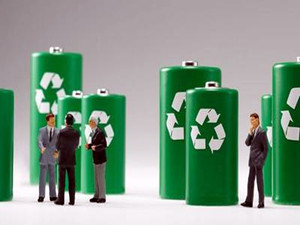Lithium Battery Expiration Date
Oct 10, 2019 Pageview:6534
A lithium-ion battery is a family of rechargeable types of batteries where lithium ions travel during discharge from the negative electrode to the positive electrode and back while charging. Lithium-ion batteries are a major improvement compared to previous battery types. Lithium ion batteries need extra protection from being too much loaded and discharged. Besides this, the current must be kept within safe limits. Accordingly, one drawback of the lithium ion battery is that it needs built-in safety circuits to ensure that they are kept in safe operation limit.
Li-ion batteries don't like exceeding zero volts. If they do, their efficiency would drop to approximately 30%. Each Li-ion battery contains a charge control circuit which is designed to charge the battery(Peculiar charging characteristics). Even when not in use, this circuit draws some energy from the battery. A very low current, but it can drain the battery for a long time.
Is there an expiration date on batteries·
Indeed, there must be an end to all good things. To find the Best If Used By (BIUB) date of the batteries concerned, have a look at the top of the cells near the type of battery (AA, 9V, etc.). You will see a white box printed in it with the Best If Used By Year. Smaller BIUB cells can be found on the packaging.
Through battery use before the Best If Used By Date, the best consumer experience and battery quality exists.
The expiry date location varies depending on the type of battery being used and the packaging being used. Many of them will have it on their package or plastic packaging in the case of button cell batteries, but sometime it can be written on the battery itself. Some batteries will have the date written near the chemical composition or battery type data on each individual battery. Most of the time it is easily visible and is often highlighted by a coloured boxed region or some other distinguishing attribute and isolated from other text.
Do lithium ion batteries degrade over time·
Yes, lithium ion batteries degrade over time. Lithium ion batteries last only two or three years, even though they are unused sitting on a shelf. So don't "levitate" the plug, assuming the battery pack will last for five years. It won't. Remember, when you buy a new battery pack, make sure it's really new. If it's been in the store for a year sitting on a shelf, it won't last long.
Lithium ion batteries hate having a charge of 0 percent and a charge of 100 percent. That's why they have about 20 percent charge when you purchase lithium-ion batteries.
If used and left at 0 percent for a long time, Li-ion batteries can form dendrites (such as an accumulation of chemical reactions). In fact, these tiny dendrites can shorten a battery, causing it to wind up. That’s why if you want to store your batteries for a long time, keep them at around 20 percent without temperature fluctuations.
Why lithium ion batteries degrade over time·
Lithium batteries can degrade in many ways, here is one main method that why it degrades.
Batteries have several main parts: the anode (positive charge), the cathode (negative charge), a separator between them, and some ion-conducting stuff between them (usually a liquid). You jam a whole lot of lithium ions into the anode when you charge a battery, like pouring liquid into a sponge. Such ions stream into the cathode when you use the pump, producing some electrical current so that the liquid don’t have much capability to absorb more ions and hence its efficiency go down and it starts degrade after a passage of time.
How to increase shelf-life of lithium ion batteries·
Lithium-ion battery packs are costly, so if you want your battery to last longer, there are a few things to remember:
· Chemistry of lithium ion prefers partial discharge to full discharge, so it is best not to take the battery down to zero. Because lithium-ion chemistry has no "memory," with a partial discharge, you do not damage the battery pack. But if a lithium-ion cell's voltage falls below a certain amount, it will be destroyed.
· Prevent lithium ion batteries from heat because heat breaks down the batteries that is keep lithium ion batteries at room temperature.
· In the course of time, batteries deteriorate, whether used or not so purchase a high capacity lithium ion battery instead of buying a spare one.
· When lithium ion batteries are fully charged then it means that lithium-ion oxidation is at its highest rate. It is recommended that lithium-ion batteries be kept at 40% discharge and should be kept at a cool place.
Do unused lithium batteries go bad·
Once placed in discharged form, lithium ion batteries "go bad." It's all about voltage of the battery. If voltage is too low-there will be undesirable chemical reactions and battery degradation. If the battery is not spent and hasn't been used for a long time-it's going to be fine. Batteries, however, are not ideal and discharge without load gradually. When you leave the full battery for a couple of months-it may discharge itself and when the voltage falls to "nearly empty voltage"-it will start to fail and lose power.
Lithium batteries will decay and loose power if it is stored near empty state.
Why unused batteries go bad·
There is a justification for the expiry date on a fresh battery pack. Because batteries generate energy using a chemical reaction contained within the battery cell, they use energy even though they have not been snapped into a remote control or toy yet.
Most batteries have a long shelf life that varies depending on their type and size, but due to the way they are made, they degrade over time. Each battery includes electrodes that are metal tape strips that are oxide-coated (a mixture of oxygen and another chemical element) and rolled up like a jelly roll. Many battery parts corrode over time, leaving them less powerful or entirely unusable.
Despite the fact that lithium ion batteries have been available for many years, it can still be regarded by some as an emerging technology because it is a new field. This can be a drawback in terms of the lack of continuous engineering. Furthermore, as new technologies for lithium ion are continuously being produced, it can also be a benefit as there are better solutions available.
- Prev Article: Lithium Polymer Batteries And Lithium Ion Batteries
- Next Article: Lithium Battery Hazard Class
Leave Message
Hottest Categories
-
Hottest Industry News
-
Latest Industry News











